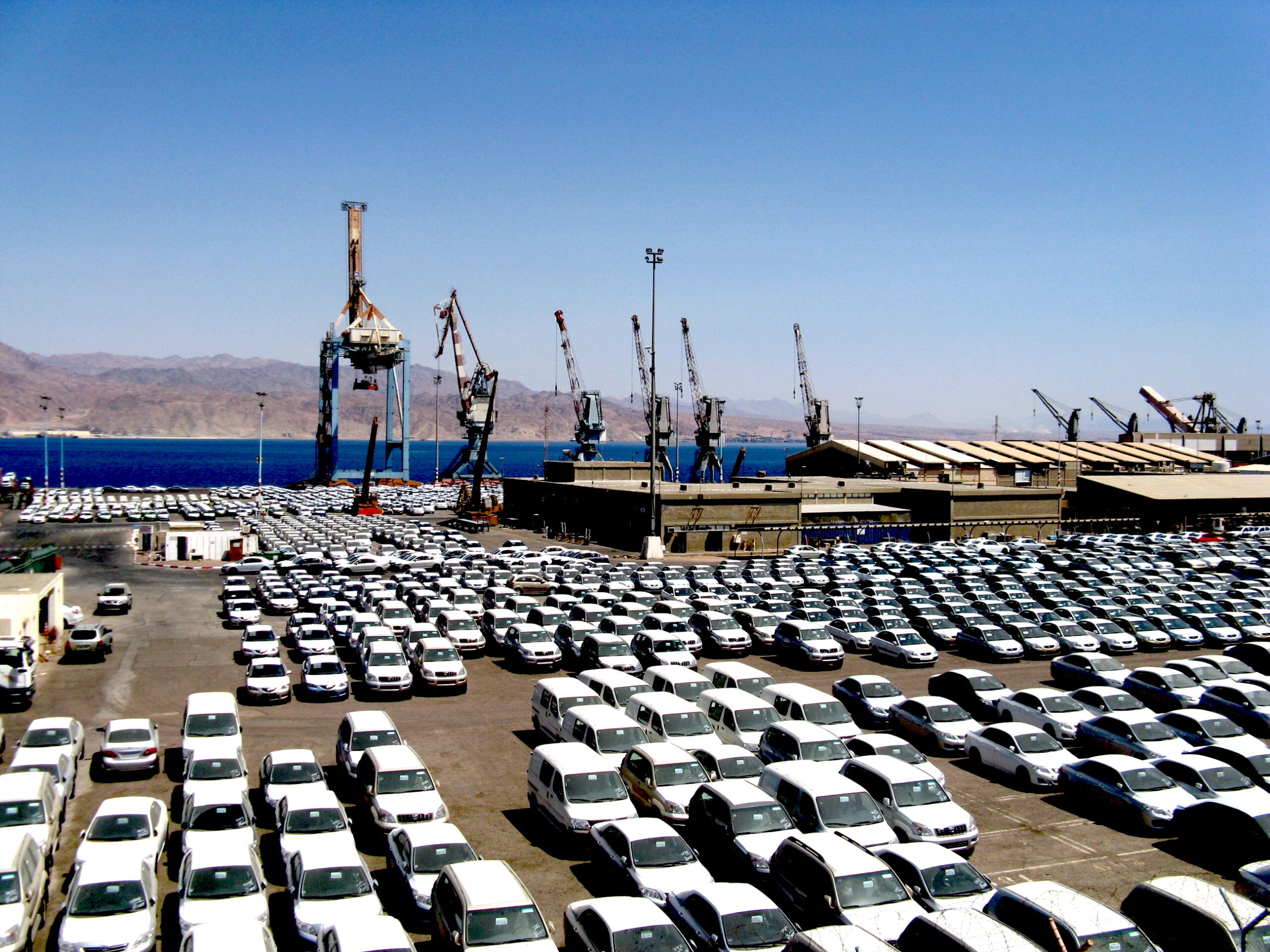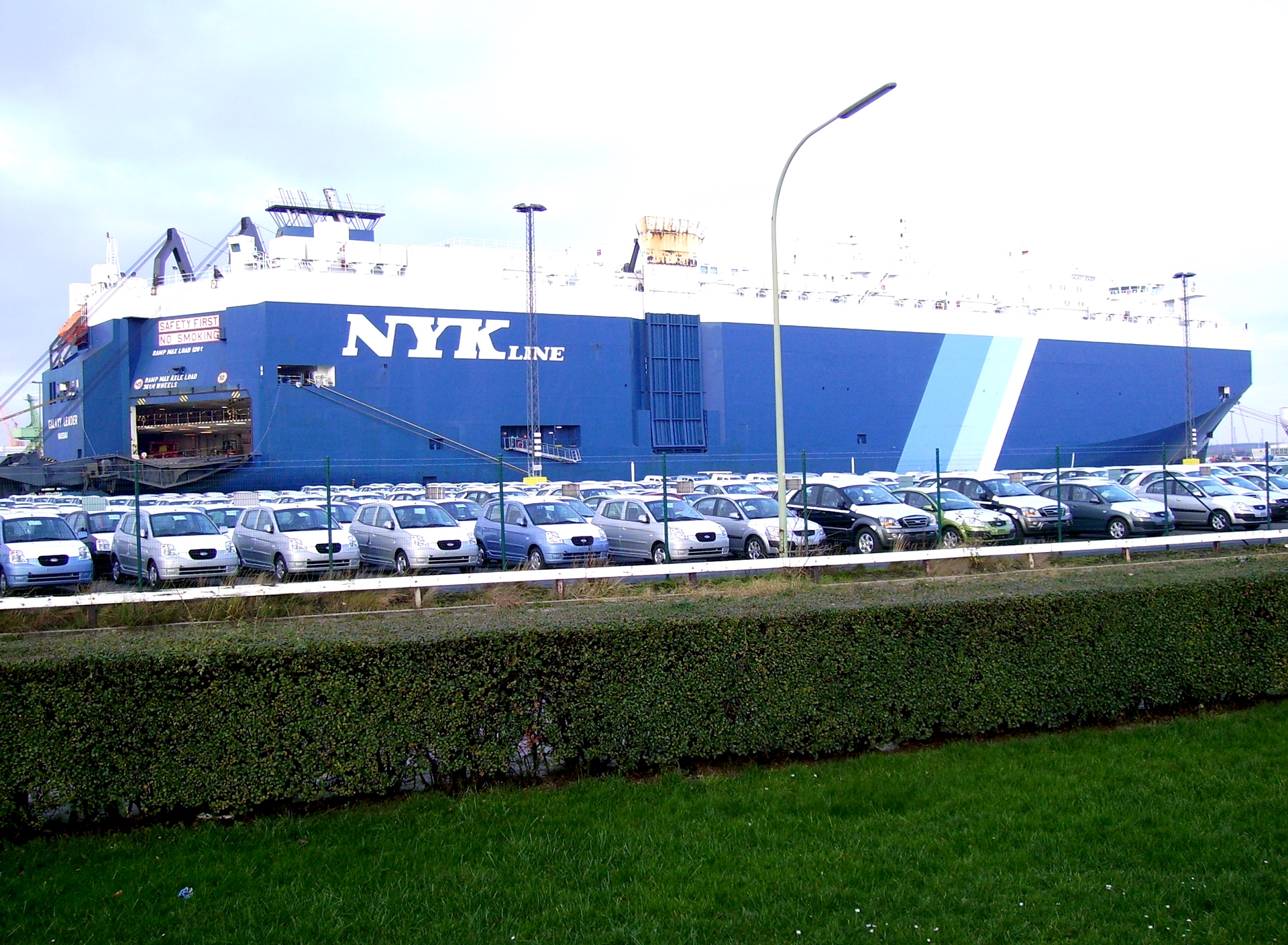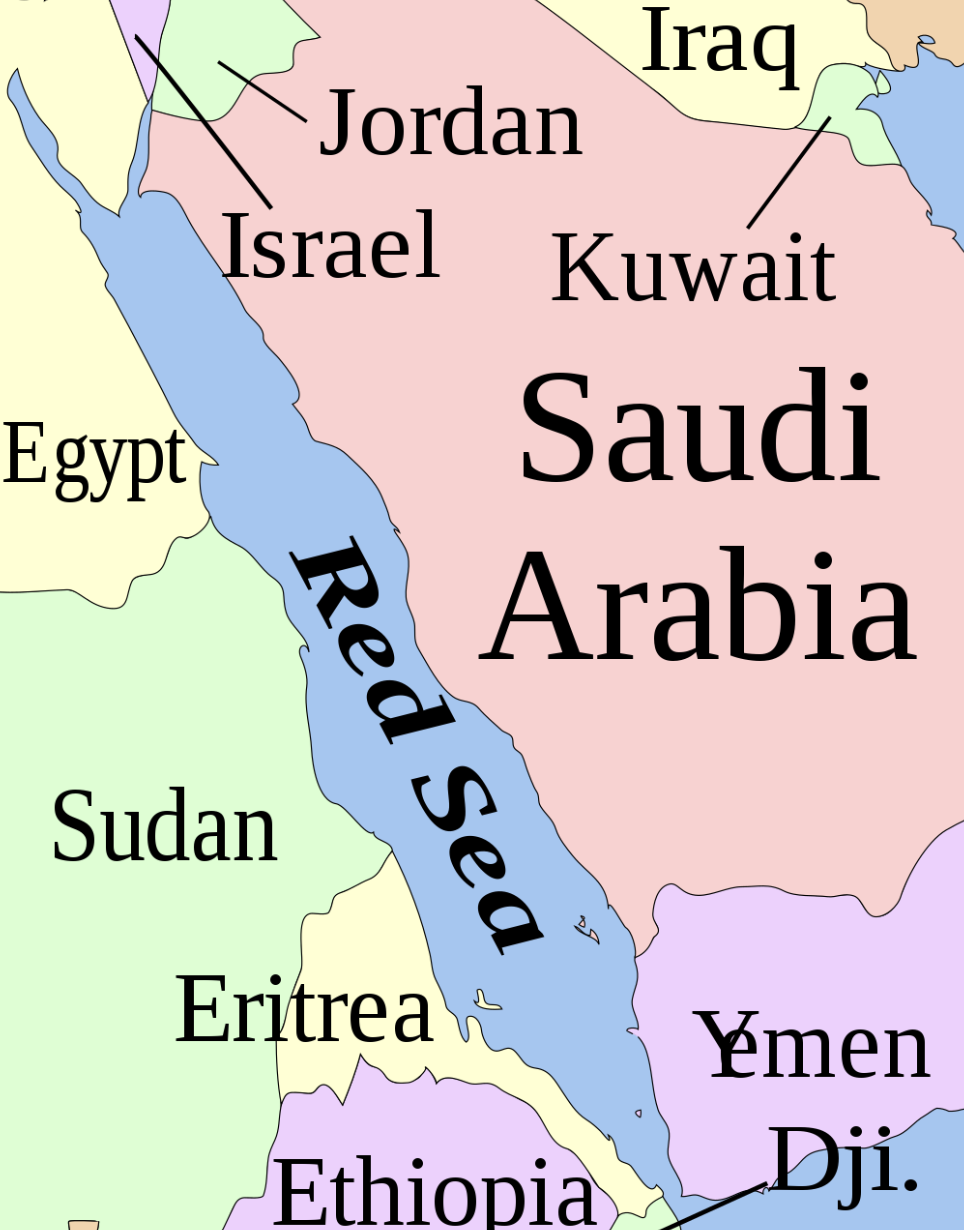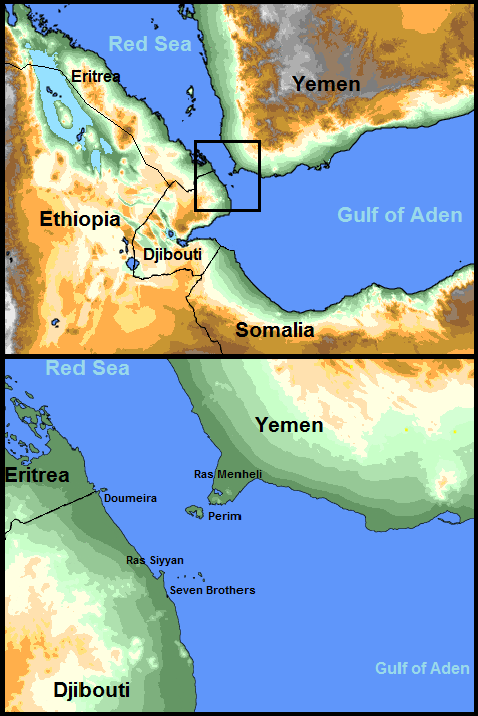The CEO of the Port of Eilat, who has been vocal about its dire economic condition for months, is now appealing for financial support from the Israeli government, Robert Inlakesh reports.

The Port of Eilat on the Red Sea in 2008. (Adiel lo, Wikimedia Commons, CC BY-SA 3.0)
By Robert Inlakesh
MintPress News
 Despite the formation of a multinational naval coalition led by the United States, the Israeli-controlled Port of Eilat has reportedly gone bankrupt and is seeking a government bailout. The situation underscores the failure of U.S.-led efforts against Yemen’s Ansar Allah — known pejoratively as the Houthis — blockade in the Red Sea, enforced until Israel ends its war on Gaza.
Despite the formation of a multinational naval coalition led by the United States, the Israeli-controlled Port of Eilat has reportedly gone bankrupt and is seeking a government bailout. The situation underscores the failure of U.S.-led efforts against Yemen’s Ansar Allah — known pejoratively as the Houthis — blockade in the Red Sea, enforced until Israel ends its war on Gaza.
“It must be acknowledged that the port is in a state of bankruptcy,” said Gideon Golber, CEO of the Port of Eilat, who has been vocal about the port’s dire economic condition for months and is now appealing for financial support from the Israeli government. Speaking to the Knesset’s Economic Affairs Committee on July 7, Golber noted that economic activity ceased following Ansar Allah’s Red Sea blockade.
On Nov. 19, 2023, Yemen’s Ansar Allah seized the Israeli-linked shipping vessel “Galaxy Leader” off the coast of Hodeidah, declaring the operation an act of solidarity with Gaza. Brigadier General Yahya Saree, spokesperson for the Yemeni Armed Forces, subsequently announced that no Israeli-linked ships would be allowed passage through the Red Sea.

Car-carrier Galaxy Leader in 2006. (Garitzko, Wikimedia Commons, Public domain)
Although Ansar Allah began firing missiles and drones at Israel on Oct.19, 2023, the comprehensive blockade in the Red Sea to prevent ships from reaching the Israeli-operated Port of Eilat wasn’t fully enforced until late November.
In December, U.S. Secretary of Defense Lloyd Austin announced that the U.S. would lead a multinational naval coalition named Operation Prosperity Guardian to ensure the free passage of ships to Eilat [Israel’s southern-most city at the northern tip of the Red Sea].
Within the first month of the blockade, economic activity at the Port of Eilat dropped by 85 percent, Golber told Reuters in December. Despite efforts from the U.S. and U.K. navies to combat the blockade, they remained confident they could restore the flow of ships to Israel.

Map of the Red Sea and bordering countries. (Derived from BlankMap-World6.svg, Canuckguy et al. Wikimedia Commons, Public domain)
However, after continued defeats inflicted by Ansar Allah, which prevented ships from passing through waters defended by the U.S.-led coalition, another military operation, “Operation Poseidon Archer,” was announced. This operation aimed to destroy Yemeni military infrastructure but failed to locate critical targets. Following a large-scale Yemeni attack on American vessels on Jan. 10, periodic airstrikes and retaliatory attacks on ships continued.
In June, the CEO of the Port of Eilat declared, “There has been no work at all for seven months.” He attributed this to the coalition’s weakness in dealing with Ansar Allah:
“This issue cannot be neglected despite the war. But there are no solutions, so I am not ashamed to tell clients to pay the Houthis $100,000 to cross, and I will participate in the financing. I don’t sleep at night, and if you have to pay the Egyptians to go through the Suez Canal, or the Houthis to go through Bab al Mandab, then that’s what’s needed.”

Maps showing the Bab-el-Mand Strait between Yemen and Djibouti and Eritrea in the Horn of Africa. (Skilla1st, Wikimedia Commons, CC BY-SA 4.0)
A month earlier, the Port of Eilat faced criticism for threatening to fire half of its approximately 120 workers. This move drew condemnation from Israel’s top labor union, the Histadrut, and even involved the Israeli Knesset.
While the economic collapse of the Port of Eilat has been unfolding over the past eight months, it has been covered in Israeli Hebrew media but received little attention in Western media. This is likely due to the stunning military failure of Operation Prosperity Guardian, which drained significant resources and U.S. taxpayer funds in an embarrassing and ultimately failed attempt to save an Israeli port.
Robert Inlakesh is a political analyst, journalist and documentary filmmaker currently based in London. He has reported from and lived in the occupied Palestinian territories and hosts the show “Palestine Files.” Director of “Steal of the Century: Trump’s Palestine-Israel Catastrophe.” Follow him on Twitter @falasteen47
This article is from MPN.news, an award winning investigative newsroom. Sign up for their newsletter.
Views expressed in this article and may or may not reflect those of Consortium News.

You reap as you sow!
One of the poorest countries in the world and with minimal military resources … but lots of determination and fortitude and willingness to accept punishment.
Now imagine if the big Arab countries like Egypt and Saudi A were like that …
Thank You Robert
Any failure on the part Israel and its benefactor is positive news. Yemen has been the only country willing to militarily challenge Israel’s maritime supply routes. And it is probably the least well-equipped to do so, after eight years of being pummeled by Saudi Arabia with U.S.-made weapons and catastrophic famine. But a theme of the last nine months has been an ever-growing number of nations which have, often due to public pressures, contributed to the apartheid state’s rapid isolation and pariah status. The humiliating failure of the United States’ characteristically self-aggrandizing operation against Yemen’s blockade is a David and Goliath tale that will go down in history. Even if American’s, as with most world events, remain oblivious.
Hahahaha… Can The West defeat anybody?
I wonder how much has been spent trying to stop Ansar Allah. In the first two US-led attacks weapons valued around half a billion dollars were expended. Since then most of the ships have had to leave to be rearmed because their armories were empty and been replaced with others. It was both amusing and appalling when Genocide Joe admitted that the attacks wouldn’t be able to stop Ansar Allah, but that they would continue anyway.
Israel’s economy has been on U.S.- life support just from the strain of supporting and housing the population that had lived near the Lebanon border. All the businesses and job’s left unattended by IDF personnel and people who’ve been put up in hotels for the better part of a year would be fatal without American taxpayer’s mostly unwilling aid. Is there a better measure of whether or not one lives in a functioning democracy ?
This is good news. Thank you Yemen for your courage and tenacity in standing up for the Palestinian people; for what is ethical and moral. Israel is going bankrupt and so is the US. The European economies supporting Israel are in dire straits. The West is in big trouble. How long before then whole thing collapses?
Couldn’t happen to a more deserving international rogue state (save for the U.S.). Hurrah for BDS on steroids.